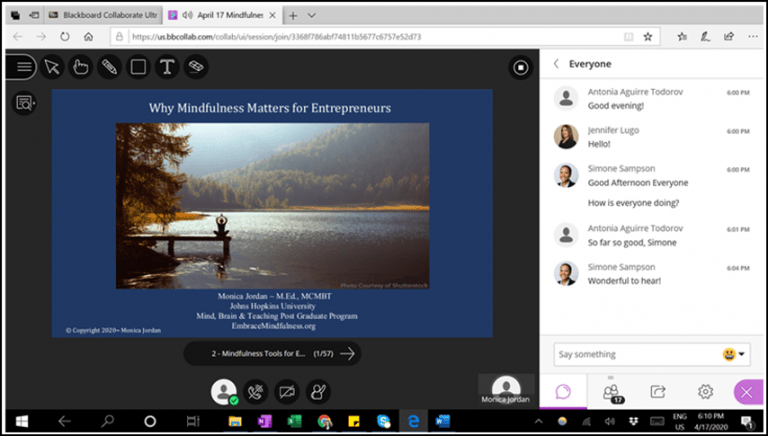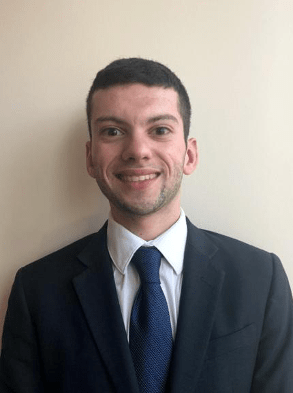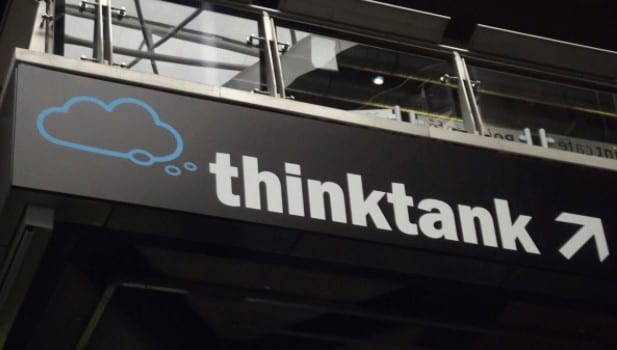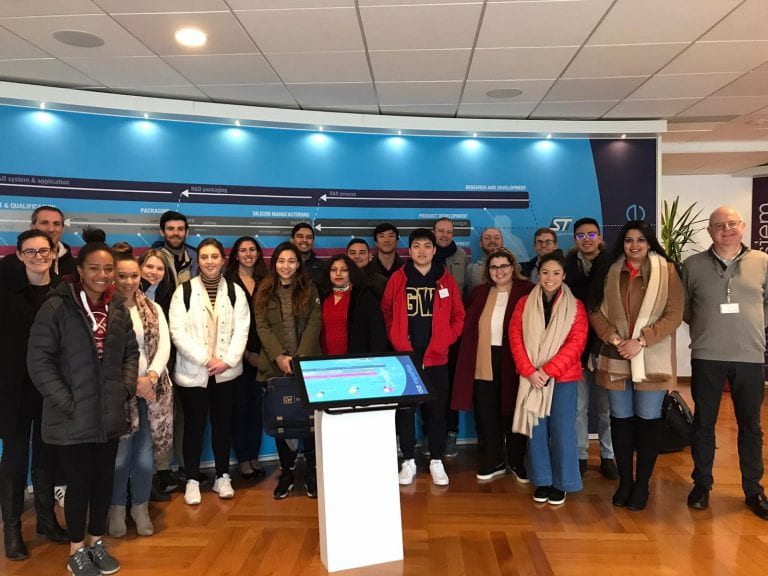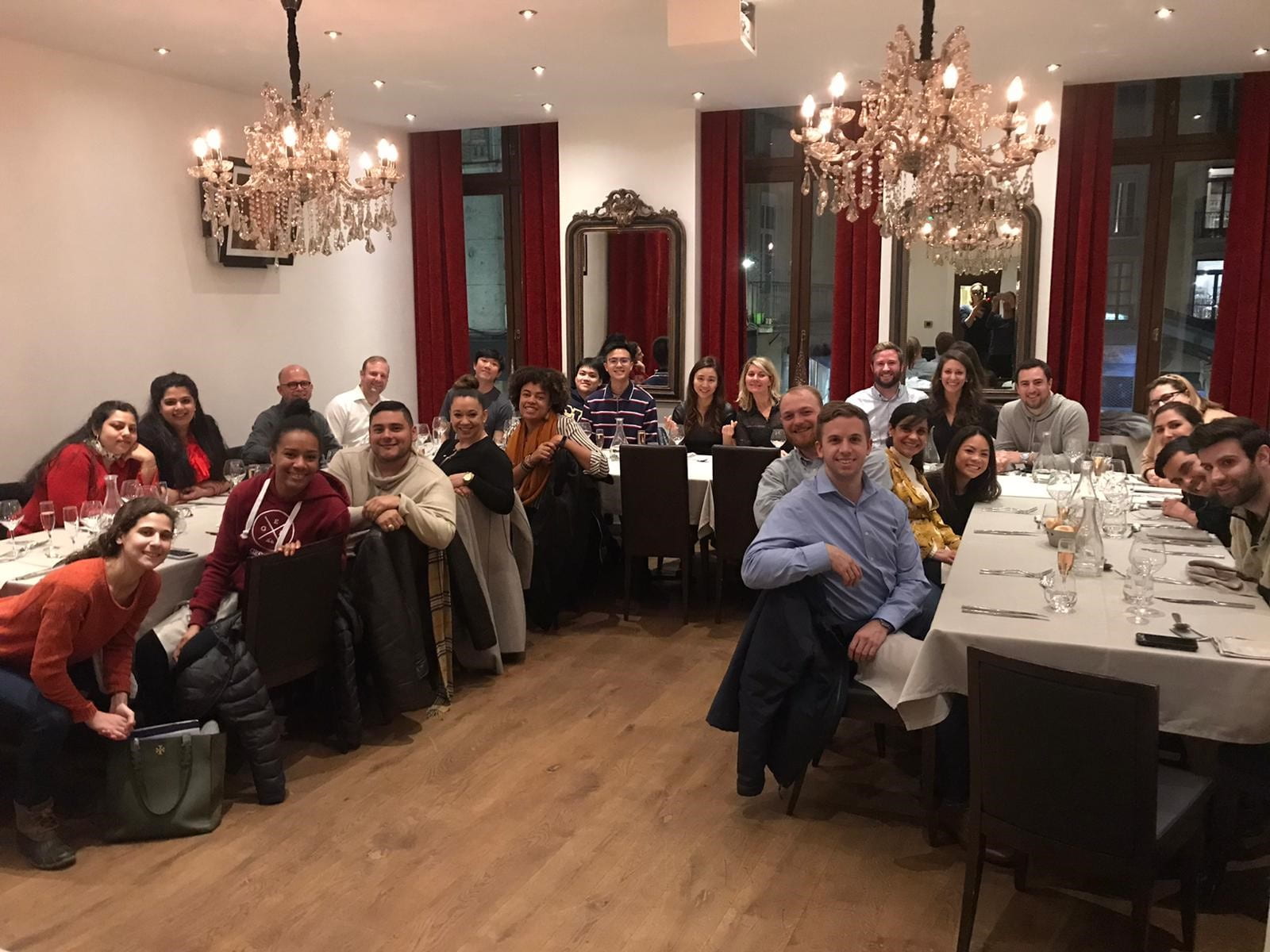How do you study abroad from home?
As with many facets of post-COVID life, students participating in Global and Experiential Education’s (G&EE) short-term study away program (STAP) Spain: Technology and Innovation in Barcelona were required to be incredibly adaptable on short notice. Within 24 hours before the first student was to depart the United States for Spain, the university announced cancellation of all international travel for students, faculty, and staff.
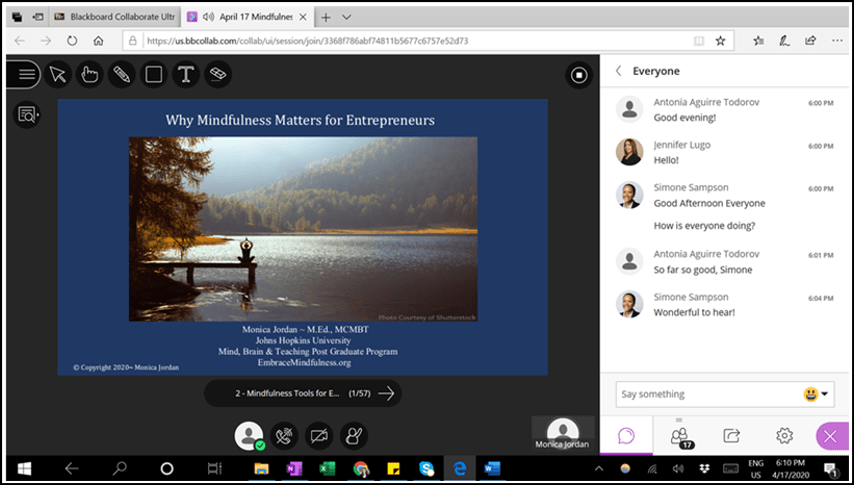
In collaboration with G&EE, Dr. Mary Granger, Professor Emerita of Information Systems & Technology Management; Dr. Nina McGarry, Adjust Professor of Information Systems & Technology Management; and I as the Student Administrative Assistant worked to create a new syllabus for this now virtual course. The show would go on!
Amidst the other, arguably more serious disruptions to work life, family life, and personal routine, it was reassuring to know that the students would still be able to complete the course for full credit, albeit in a revised format and far from the Catalan capital. For many students, being able to complete a revised version of this course allowed them to stay on track for their graduation at the end of the Spring 2020 semester.
While the physical limitations of the class might not have allowed the students to experience the in-person environments of the start-ups we were due to visit, the online learning format did end up uniquely contributing to the course in a meaningful way. Rather than the usual half-hour visit, students got the chance to spend two hours (virtually) with each entrepreneur, including: Kathy Korman Frey, Founder, The Hot Mammas Project; Alan Patterson, Founder of Boxstore Split Buddy; Ken Huntsman, Angel Investor and co-founder of America Online; and Joan-Albert Garcia Moga, Associate Professor at ESADE Business and Law School. The shared trials of social distancing allowed for common ground and richer conversation. The extended timeline of the course furthermore allowed students to spend a full month developing their own startup pitches, rather than a short week.
Ultimately, the students were able to experience the role of technology and innovation in adapting to changing circumstances firsthand. I'm confident that when the world finds its "new normal," they will be able to leverage the resilience, adaptability, and entrepreneurial spirit developed during this time to make great change.

Nicole Fitchett served as Student Administrative Assistant for GW’s Spain: Technology and Innovation in Barcelona course and is a ’21 MBA Candidate at the George Washington University School of Business.

